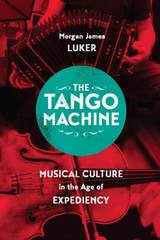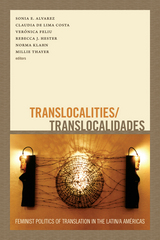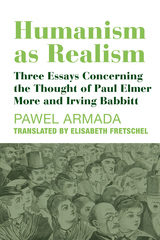4 start with T start with T

Luker traces the diverse and often contradictory ways tango is used in Argentina in activities ranging from state cultural policy-making to its export abroad as a cultural emblem, from the expanding nonprofit arts sector to tango-themed urban renewal projects. He shows how projects such as these are not peripheral to an otherwise “real” tango—they are the absolutely central means by which the values of this musical culture are cultivated. By richly detailing the interdependence of aesthetic value and the regimes of cultural management, this book sheds light on core conceptual challenges facing critical music scholarship today.


Contributors. Sonia E. Alvarez, Kiran Asher, Victoria (Vicky) M. Bañales, Marisa Belausteguigoitia Rius, Maylei Blackwell, Cruz C. Bueno, Pascha Bueno-Hansen, Mirangela Buggs, Teresa Carrillo, Claudia de Lima Costa, Isabel Espinal, Verónica Feliu, Macarena Gómez-Barris, Rebecca J. Hester, Norma Klahn, Agustín Lao-Montes, Suzana Maia, Márgara Millán, Adriana Piscitelli, Ana Rebeca Prada, Ester R. Shapiro, Simone Pereira Schmidt, Millie Thayer

In the sixth month of 736, a Japanese diplomatic mission set out for the kingdom of Silla, on the Korean peninsula. The envoys undertook the mission during a period of strained relations with the country of their destination, met with adverse winds and disease during the voyage, and returned empty-handed. The futile journey proved fruitful in one respect: its literary representation—a collection of 145 Japanese poems and their Sino-Japanese (kanbun) headnotes and footnotes—made its way into the eighth-century poetic anthology Man’yōshū, becoming the longest poetic sequence in the collection and one of the earliest Japanese literary travel narratives.
Featuring deft translations and incisive analysis, this study investigates the poetics and thematics of the Silla sequence, uncovering what is known about the actual historical event and the assumptions and concerns that guided its re-creation as a literary artifact and then helped shape its reception among contemporary readers. H. Mack Horton provides an opportunity for literary archaeology of some of the most exciting dialectics in early Japanese literary history.
READERS
Browse our collection.
PUBLISHERS
See BiblioVault's publisher services.
STUDENT SERVICES
Files for college accessibility offices.
UChicago Accessibility Resources
home | accessibility | search | about | contact us
BiblioVault ® 2001 - 2024
The University of Chicago Press









